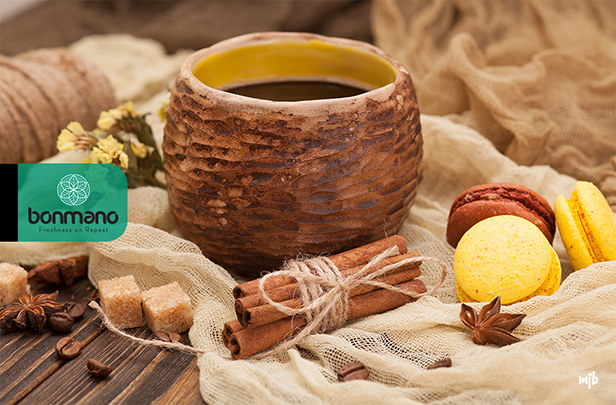
Tuesday, 07 October 2025
What is the temperament of coffee? Is it hot or cold?
Imagine waking up on a cold winter morning and warming yourself with a cup of hot coffee — or on a hot summer day, choosing a refreshing glass of iced coffee instead. But have you ever wondered why some people feel warm and energized after drinking coffee, while others feel cold or weak? This goes back to the nature (temperament) of coffee and how it interacts with different body temperaments.
In traditional medicine, every food has a specific temperament that may either harmonize or clash with a person’s body type. Understanding the temperament of coffee helps you know how it affects your body and how to consume it for the best results.
From the perspective of traditional medicine, coffee is considered cold and dry in nature. This means it reduces body heat and increases dryness. Therefore, it benefits people with a warm temperament but might cause discomfort for those with a cold nature.
However, the roasting process of coffee beans also changes their temperament:
Green (unroasted) coffee beans are warm and dry.
Roasted coffee beans become cold and dry after roasting.
That’s why the type of coffee you drink also matters.
People with a warm temperament usually feel more alert and energetic after drinking coffee, while those with a cold and dry temperament may experience fatigue, coldness, or insomnia. To balance this, traditional medicine recommends combining coffee with warming ingredients such as saffron, cinnamon, cardamom, rosewater, or ginger.
Modern nutrition also agrees that coffee affects metabolism and the nervous system differently for each person — making some feel energized and others weak or restless.
How Coffee’s Temperament Affects the Body
Because coffee is cold and dry, it helps reduce excess heat and moisture in warm-tempered people, improving alertness and focus. But in cold-tempered individuals, it may lead to dryness, fatigue, or digestive issues.
To balance coffee’s effects, you can add:
Cinnamon – reduces coldness and boosts energy.
Cardamom – aids digestion and adds pleasant aroma.
Saffron – uplifting and warming.
Ginger – increases warmth and prevents fatigue.
Rosewater – calming and balancing.
Honey or rock candy – prevents dryness and boosts vitality.
Coffee and Milk
Milk is cold and moist, so adding it to coffee increases the cooling effect. It’s suitable for people with a warm nature but not ideal for those with a cold temperament unless mixed with warming spices.
Best Time to Drink Coffee by Season
Spring: Suitable for everyone, but cold-tempered people should add cinnamon or cardamom.
Summer: Iced coffee helps cool the body but can cause dehydration if overused.
Autumn: Add rosewater or honey to reduce dryness.
Winter: Drink coffee with warming spices like cinnamon, ginger, or saffron.
In short, whether coffee benefits you depends on your body’s temperament, the season, and how you prepare it. Knowing how to balance coffee’s nature allows you to enjoy its benefits — energy, focus, and pleasure — without unwanted side effects.

